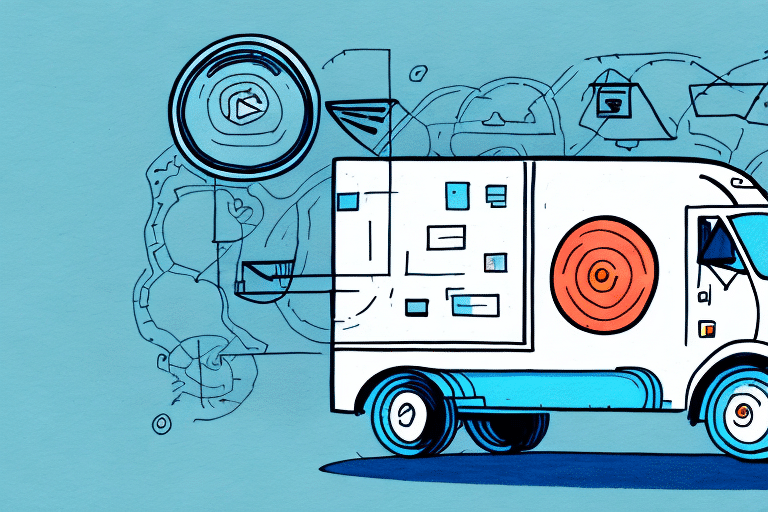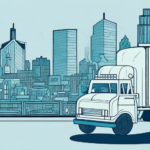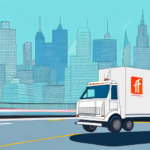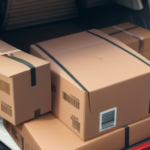Maximizing Your Ecommerce Business with Last-Mile Carrier Tracking
As an ecommerce business owner, you understand that the last mile of delivery can significantly influence customer satisfaction. Partnering with reliable last-mile carriers ensures timely and accurate deliveries for your customers. But how can you guarantee that your last-mile delivery process meets high standards? The answer lies in effective last-mile carrier tracking.
Understanding Last-Mile Delivery and Its Importance
Last-mile delivery refers to the final stage of the delivery process, from the carrier's hub to the customer's doorstep. Although it may seem straightforward, this stage accounts for a substantial portion of delivery costs and time, heavily impacting customer satisfaction. According to a survey by Convey, 84% of customers consider delivery a crucial factor in their purchase decisions. Hence, delayed or inaccurate deliveries can lead to lost sales and negative customer reviews.
The Role of Last-Mile Carriers in the Delivery Process
Last-mile carriers are responsible for delivering packages to end customers. They can be postal services, courier companies, or even gig economy drivers, depending on the region and type of delivery. As a critical component of the ecommerce supply chain, they significantly impact the customer experience.
Why Last-Mile Delivery is Crucial for Customer Satisfaction
The last-mile delivery stage is the most crucial from the customer's perspective. This is when they receive their package and form their final impression of your brand. A failed last-mile delivery can lead to dissatisfied customers, negative reviews, and lost sales. Conversely, a seamless and transparent last-mile delivery process can enhance the customer experience, boost loyalty, and encourage repeat purchases.
The Challenges of Last-Mile Delivery
Last-mile delivery faces several challenges, including traffic congestion, weather conditions, and remote locations. These factors can cause delays, missed deliveries, and additional costs for carriers. To overcome these challenges, carriers need efficient routing and scheduling systems, real-time tracking, and effective communication with customers.
The Future of Last-Mile Delivery
Last-mile delivery is continuously evolving with new technologies and innovations aimed at improving efficiency and customer experience. Innovations such as drones, autonomous vehicles, and smart lockers have the potential to revolutionize last-mile delivery, making it faster, cheaper, and more convenient for customers.
The Advantages of Last-Mile Carrier Tracking for Your Business
Last-mile carrier tracking involves monitoring and managing package deliveries in real-time. Partnering with a last-mile carrier that offers tracking features provides several advantages for your business:
Real-Time Visibility of Deliveries
With last-mile carrier tracking, you can monitor package deliveries from the carrier's hub to the customer's doorstep. This allows you to provide accurate and timely updates to your customers, enhancing their delivery experience. Additionally, you can proactively address any delivery issues, such as delays or failed attempts, and offer quick solutions.
Improved Delivery Accuracy and Efficiency
Last-mile carrier tracking helps improve delivery accuracy and efficiency. By monitoring the delivery process, you can identify potential bottlenecks and optimize delivery routes and schedules. This reduces delivery times and costs, and minimizes the risk of failed deliveries.
Increased Customer Satisfaction
Providing real-time tracking information boosts customer satisfaction. Customers value transparency and being informed about their delivery status. This can lead to positive reviews, repeat business, and referrals to new customers. Additionally, swiftly addressing delivery issues further enhances customer satisfaction and loyalty.
Overcoming Last-Mile Delivery Challenges
The last-mile delivery process presents several challenges for ecommerce businesses, including traffic congestion, delivery costs, and time constraints.
Addressing Traffic and Congestion Issues
In urban areas, last-mile delivery can be hindered by traffic congestion and limited delivery windows. However, with last-mile carrier tracking, you can mitigate these issues by optimizing routes and schedules, and even re-routing packages in real-time.
Managing Delivery Costs and Time Constraints
Last-mile delivery is often cost-intensive due to multiple delivery attempts and returns. By partnering with a last-mile carrier that offers tracking features, you can minimize these costs by optimizing delivery routes and windows. This also helps meet customers' delivery time expectations and reduces the risk of missed deliveries.
Improving Customer Experience
Ensuring a positive customer experience is a significant challenge in last-mile delivery. This includes providing accurate delivery estimates, offering flexible delivery options, and real-time tracking updates. Partnering with a last-mile carrier that offers these features can improve customer satisfaction and loyalty.
Reducing Environmental Impact
Last-mile delivery can have a considerable environmental impact, with delivery vehicles contributing to air pollution and traffic congestion. Implementing sustainable delivery practices, such as using electric vehicles or optimizing delivery routes to reduce travel time and distance, helps ecommerce businesses lower their carbon footprint and contribute to a more sustainable future.
Benefits of Advanced Last-Mile Carrier Tracking Solutions
Utilizing advanced last-mile carrier tracking solutions can revolutionize your delivery process, offering numerous benefits:
Enhanced Data and Analytics
Advanced tracking solutions provide comprehensive data and analytics on delivery performance. This information can help identify trends, optimize operations, and make informed strategic decisions. Integrating data from reputable sources like the U.S. Department of Transportation can further enhance your analysis.
Seamless Integration with Ecommerce Platforms
Modern tracking solutions integrate seamlessly with popular ecommerce platforms such as Shopify and WooCommerce. This integration streamlines your delivery process, allowing you to manage orders, track shipments, and communicate with customers efficiently.
Scalability and Flexibility
Advanced tracking systems are scalable and flexible, accommodating the growth of your business. Whether you experience seasonal spikes or continuous growth, these solutions can adapt to your changing needs, ensuring consistent delivery performance.
The Bottom Line: Why Last-Mile Delivery Matters
Last-mile delivery is a critical component of the ecommerce supply chain, significantly impacting customer satisfaction and loyalty. By partnering with a last-mile carrier that offers tracking features, you can ensure accurate and timely deliveries, reduce costs and time constraints, and enhance the overall customer experience.
Furthermore, last-mile delivery affects the environment. The rise of ecommerce has led to more delivery vehicles on the road, increasing carbon emissions and traffic congestion. Choosing a last-mile carrier that prioritizes sustainable practices, such as using electric or hybrid vehicles and optimizing delivery routes, helps reduce your company's carbon footprint and supports a more sustainable future.
Last-Mile Carrier Tracking FAQs: Everything You Need to Know
Q: What is last-mile carrier tracking?
A: Last-mile carrier tracking refers to the ability to monitor and manage your package deliveries in real-time, from the carrier's hub to the customer's doorstep.
Q: How can last-mile carrier tracking improve my business?
A: Last-mile carrier tracking provides real-time visibility of deliveries, improves delivery accuracy and efficiency, and helps overcome challenges such as traffic congestion and delivery costs.
Q: How can advanced tracking solutions help my business with last-mile delivery?
A: Advanced tracking solutions offer cutting-edge tracking and analytics features, customizable delivery options, and seamless integration with ecommerce platforms, helping you optimize your last-mile delivery process and achieve business success.
Q: What are some common challenges faced by businesses in last-mile delivery?
A: Common challenges include inaccurate delivery estimates, missed deliveries, package theft, and poor communication with customers.
Q: How can last-mile carrier tracking help overcome these challenges?
A: Last-mile carrier tracking provides real-time updates on delivery status, enables proactive communication with customers, and offers delivery options such as same-day or scheduled delivery. Additionally, it helps identify areas for improvement, such as optimizing delivery routes or adjusting delivery times to avoid peak traffic hours.
With last-mile carrier tracking, you can ensure a seamless and transparent delivery process for your customers, boosting your ecommerce business's success. Explore reputable tracking solutions today to enhance your delivery operations.






















